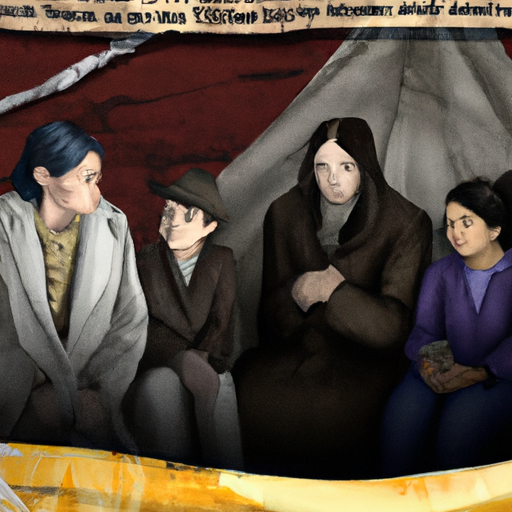Unpacking the Complexities of the Current Canadian Opioid Crisis
As Canada grapples with its ongoing opioid crisis, certain regions and demographics are feeling the brunt of the impact more severely. Primarily, Saskatchewan First Nations communities are particularly struggling, a fact which can largely be attributed to a gap in treating addiction and mental health issues in these areas.
Status of the Opioid Crisis in Saskatchewan’s First Nations Communities
The opioid crisis has deeply impacted First Nations communities in Saskatchewan with the fatalities from opioid overdose being drastically higher within these populations when compared with other regions. The devastating effect of this crisis on indigenous communities is a poignant reflection of how systemic inequity and negligence can culminate into a tragedy of such magnitude.
Dealing with Grief:
Communities are reeling from the incessant grief arising from losing their members to this crisis. Many families have been torn apart, with numerous children having lost their parents to opioid overdoses. This has led to social issues such as homelessness and a rise in crime, putting even more strain on already disadvantaged communities.
The Role of Culturally Appropriate Health Care:
A crucial element to addressing this crisis lies in the implementation of culturally appropriate health care, resonating with Saskatchewan First Nations’ unique experiences and values. These strategies involve indigenous-guided methods, like talking circles and involvement of elders, to combat addiction and associated mental health problems.
Government Initiatives to Combat the Opioid Crisis
Efforts from the government and medical bodies are taking place towards mitigating the opioid crisis. Key activities include:
- The opioid class action lawsuit filed by the province against opioid manufacturers and wholesalers is a significant step. Aimed at holding these parties accountable for their role in this crisis, this lawsuit may also serve to deter future negligent practices in the pharmaceutical industry.
- An investment of 1.4 million dollars to the Saskatchewan First Nations communities to outreach opioid-related support services in a bid to save lives and work towards addiction recovery.
- The distribution of free naloxone kits, a medication designed to quickly reverse an opioid overdose, is also part of a harm reduction strategy. Multiple community-based organizations have received and been trained in how to use these kits.
- The expansion of other harm reduction services, such as safer consumption sites, and managed opioid programs are also part of the policy measures being implemented.
Continuing Challenges
Despite these efforts, several challenges remain. The opioid crisis requires an ongoing, multifaceted approach, integrating medical, governmental, and community bodies for a collaborative response. Over-reliance on law enforcement instead of health and social services may exacerbate the problem, criminalizing those who are actually in need of help. The need for culturally appropriate and accessible addiction healthcare services is still prominent, particularly in rural and remote communities.
Conclusion
The magnitude and complexity of the Canadian opioid crisis demands diligent research, discussion, and action. Despite a rise in efforts, the struggle is far from over. We must focus on the utility of practices like culturally appropriate care and the use of naloxone kits, while not forgetting to analyze and rectify the systemic racism and neglect that contributes to the adversity faced by indigenous communities today.
Only when we, as a nation, acknowledge these deep-seated issues and work collaboratively towards providing adequate care, can we hope to put an end to this devastating opioid crisis.
